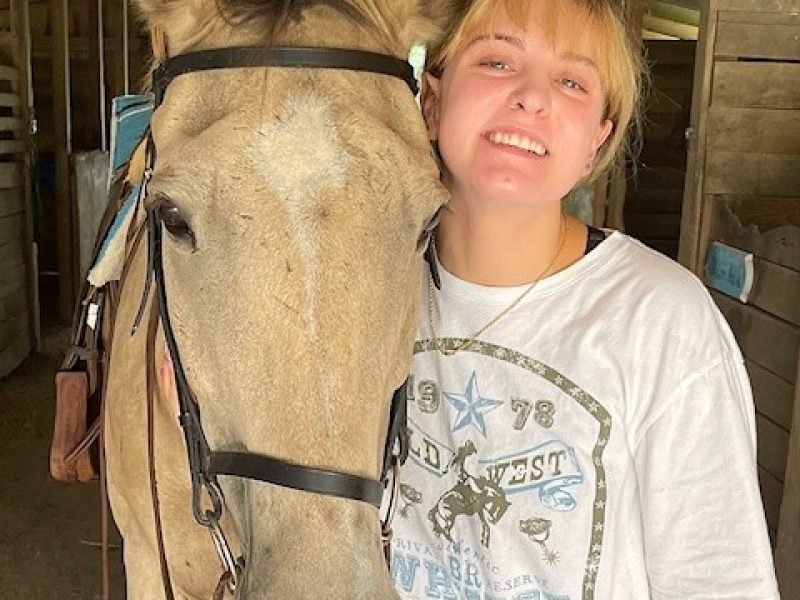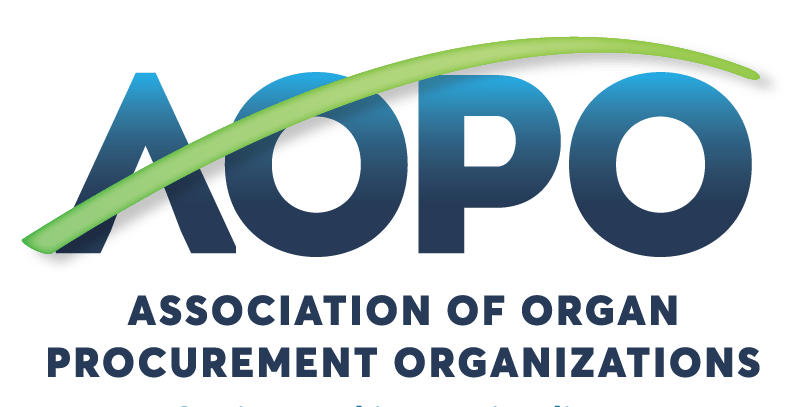As Ania Yarish herds farm animals on the family farm, a wide grin on her face, it’s hard to believe that she was ever sick enough to require a liver transplant. But 23 years ago, Ania was placed on the transplant list and fighting for her life at only 3 months old.
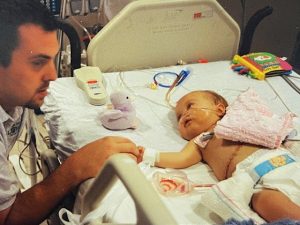
“Ania was born and had biliary atresia, so her liver was failing from birth,” said her mother, Diana Yarish. “I was administering about 11 medications three or four times a day, all while trying to live a normal life and raise my other two children. I just couldn’t do it. I would lose it at night, by myself, because I wanted to hold it together for my family.”
It was during one of these late-night cry sessions when hope came in the form of a buzzing pager (it was 2002, after all). The University of Nebraska Medical Center was on the line, with a new liver for Ania.
“They told us we needed to get there within eight hours,” recalled Diana. “It was about 3 a.m. and we lived in Augusta, Georgia. I told the woman I didn’t remember what I was supposed to do, so she slowed down and said, ‘call your transport.’ Our friends were there at the time, visiting from Ohio, so they stayed back and took great care of my two older girls. We got Ania on a private little jet plane with two nurses, and half the plane was equipment. When we landed, they strapped my husband, Steve, to a gurney while he held Ania and took an ambulance to the hospital.”
Once there, Ania and her parents waited for the transplant as someone else said goodbye to their child. “I knew it was a little girl, because the nurse accidentally said, ‘she’s here, but her family is with her.’ There were so many feelings, because we knew what was happening, but we also knew what we wanted for our child.”
On June 26, 2002, Ania received the gift of life—and within hours of receiving it, there was a noticeable change.
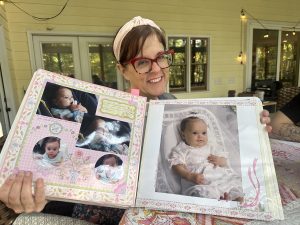
“You could see the line of demarcation, where the bile was leaving her body as her liver processed it,” said Diana. “For the first time, her eyes were not yellow. The little whites of her eyes were so pretty!”
Their struggles weren’t over, however—Ania developed post-transplant lymphoproliferative disorder (PTLD) only a year later.
“It comes from your immune system being overly suppressed,” said Diana. “It’s caused by the Epstein-Barr virus, so it doesn’t leave your body, but it’s now at a normal level. In her system it went crazy and caused cancer in her tonsils. So, we battled that for two years before moving to North Carolina.”
The move was challenging—they left behind a strong support system in Augusta and had to navigate a new medical team while making difficult decisions.
“We moved here and took her off her meds, because they can cause kidney failure,” said Diana. “We moved her care to Duke, and they took labs to see what we were up against. They called and told us that, without the meds, Ania’s EBV (Epstein-barr virus) count was down to 3! She was healthy and cleared for preschool.”
Ania was able to enjoy a normal life throughout her childhood but continues to take medication and will undergo lab tests for the rest of her life. Her parents made the decision early on to partner with Ania in her healthcare—a choice that has helped her tremendously in early adulthood.
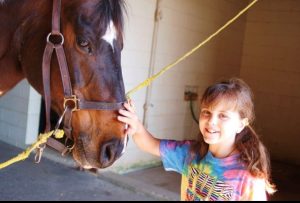
“I don’t think many people think about educating their child on medicine, but it’s not just on the doctors—they’re not with you 24/7,” said Ania. “It’s got to be a group effort to educate your child and make sure they know who to call in an emergency, what their meds are, what they’re called. Without my mom drilling me on what I needed to do, I probably wouldn’t have successfully transferred from a kid to adult, transplant-wise.”
Although she doesn’t recall a specific moment when she was told she has a donated liver, it’s something Ania has always been deeply aware of and grateful for.
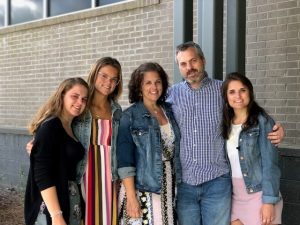
“I’ve always grown up knowing I have a liver transplant, and I’m not going to abuse that,” said Ania. “This is my one liver, and I’m grateful for it. Without the liver transplant I wouldn’t even be here. Because of it, I have been given the chance to live the farm life, while also attending esthetician school. I love it.”
Ania’s unexpected cancer diagnosis came only a year after her transplant—preventing the family from ever contacting their donor’s family. Despite this, both Ania and her parents think about their selfless choice all the time.
“None of it would happen, we wouldn’t be here, had somebody not said yes,” said Diana. “At a time when their world was falling apart, they helped ours come together. There’s no gratitude that’s ever enough. Ania gets to be a normal kid and make stupid mistakes, experience great victories, learn hard lessons, and live great lessons. All the normal stuff that my other two children get to do, she gets to do too, but it just means a little bit more.”
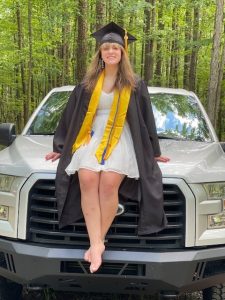
While her donor’s family may never get to see Ania on the farm, surrounded by swirling leaves and her barnyard sidekicks, the gift that made it all possible endures. Every breath she takes and every year that passes is a miracle, cherished by Ania and all who love her.
“By saying ‘yes’ to donation, you don’t just save the recipient, you save the family,” said Ania. “We were all meant to be here, on the farm, together. I enjoy riding my horse, seeing the cows, and taking a batch of chickens with me on the golf cart. It’s what I should have been doing all along, and none of it would have been possible without my transplant.”
More than 75 lives can be saved and healed by one organ, eye and tissue donor. Register your decision today!
